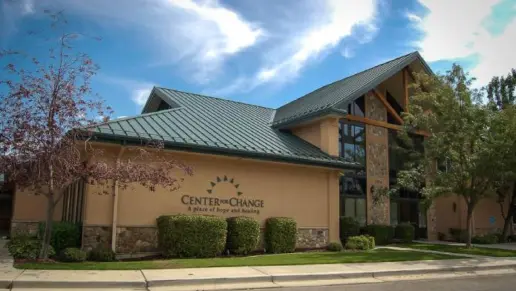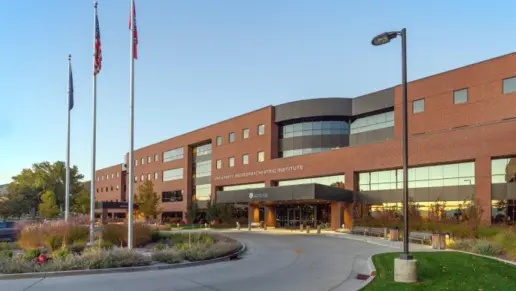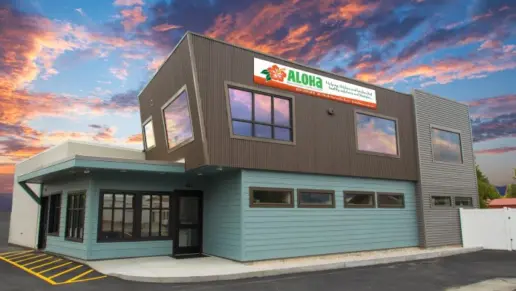Here, people with addiction histories, cancer survivors, with surgery complications, and many other issues come seeking for solace. Their treatment addresses the root of the problem but also rehabilitate all aspects that need healing through physical therapists, massage ther ...
About The Bridge Health Recovery Center
The Bridge Health Recovery Center is a wellness retreat in Hurricane, Utah. They help adolescents and adults overcome chronic physical and mental health conditions, including substance abuse. Their residential program lasts three weeks and includes full accommodations in a serene desert setting. You can pay for your stay through self payment or private insurance. They also offer financing options.
One thing that caught my eye about this facility is the unique setting. They limit their program to 20 people at a time so you’ll get focused, individualized care. They take a holistic approach to healing, calling on the beauty of nature to help heal and restore your body and mind. When you stay here, you’ll work alongside some of the top providers in the state, including therapists, physicians, mental health experts, life coaches and holistic healers.
You’ll enjoy your own private room, healthy meals and snacks throughout the day, and access to the onsite pool and hot tub. Almost everywhere you go, there’s a beautiful view of the desert and mountains. During your stay you’ll attend counseling sessions and educational workshops that incorporate evidence based techniques, clinical psychology and skills training. They also offer physical and massage therapy as well as personal training.
If you’re someone who gravitates toward natural healing modalities, you’ll love it here. There are yoga classes, art therapy, hiking trails, rock climbing walls, equine therapy and lots of other hands-on ways to engage with your surroundings.
One past client said this program gave her hope in herself and in her future. Another said that the program is unique and unlike any other form of therapy she’d ever tried.
Gallery
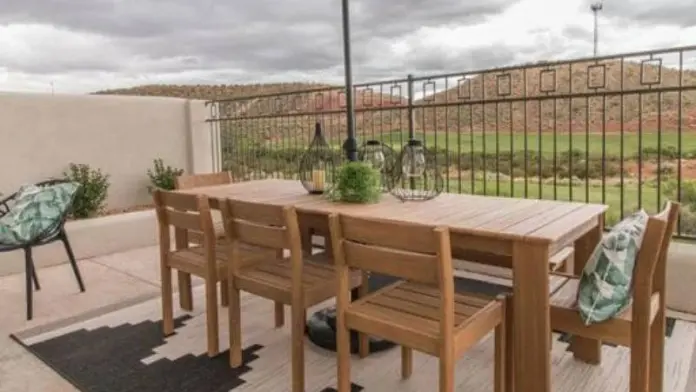


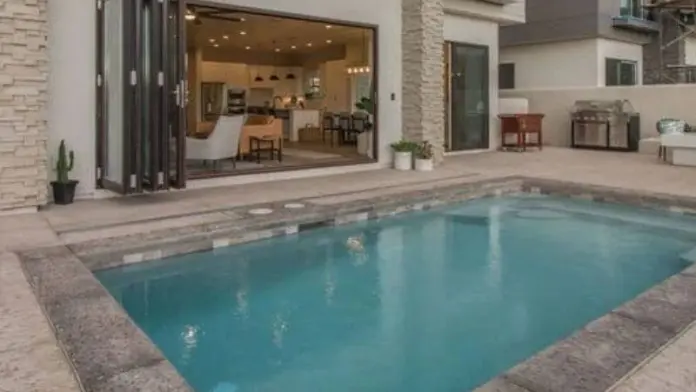

Location
Accepted Insurance
Other Forms of Payment
Private insurance refers to any kind of healthcare coverage that isn't from the state or federal government. This includes individual and family plans offered by an employer or purchased from the Insurance Marketplace. Every plan will have different requirements and out of pocket costs so be sure to get the full details before you start treatment.
Self-pay involves paying for treatment out of your own pocket. You can use savings or credit, get a personal loan, or receive help from family and friends to fund your treatment. If you don't have insurance or your insurance plan doesn't cover a specific program, self-pay can help ensure you still get the care you need.
Addiction Treatments
Levels of Care
Treatments
Professional addiction treatment at an alcohol rehab in Utah can help people struggling with alcohol use disorder. This disorder occurs when someone becomes psychologically or physically dependent on alcohol. During treatment, individuals undergo detox to safely withdraw from alcohol. Then, they participate in a customized treatment plan that uses behavioral therapies and support systems to help them move forward in recovery.
When you enter a drug rehab in Utah, the process usually involves four stages: treatment initiation, early abstinence, maintaining abstinence, and advanced recovery. Treatment methods can rely on medications, counseling, or both, in either an outpatient or inpatient setting.
Dual-diagnosis rehabs in Utah provide comprehensive care for individuals facing both mental health and substance abuse challenges. Through personalized treatment plans tailored to your unique needs, clinicians provide a holistic and effective approach towards mental health. Programs usually include individual and group therapies, such as cognitive behavioral therapy, or dialectical behavioral therapy, mindfulness-based therapy, and skills training to dramatically enhance your chances of long-term sobriety and mental health.
Programs





Clinical Services
Cognitive Behavioral Therapy (CBT) is a therapy modality that focuses on the relationship between one's thoughts, feelings, and behaviors. It is used to establish and allow for healthy responses to thoughts and feelings (instead of unhealthy responses, like using drugs or alcohol). CBT has been proven effective for recovering addicts of all kinds, and is used to strengthen a patient's own self-awareness and ability to self-regulate. CBT allows individuals to monitor their own emotional state, become more adept at communicating with others, and manage stress without needing to engage in substance abuse. Psychology appointments as well as group workshops aid in problem solving and behavior change.
During dialectical behavior therapy in Utah, you'll work on developing four main skills. Interpersonal effectiveness helps you manage your relationships. Mindfulness keeps you present in the current moment rather than worry or regret. Distress tolerance helps you accept emotions. Emotional regulation gives you the tools you need to successfully manage intense emotions.
Group therapy is any therapeutic work that happens in a group (not one-on-one). There are a number of different group therapy modalities, including support groups, experiential therapy, psycho-education, and more. Group therapy involves treatment as well as processing interaction between group members.
In individual therapy, a patient meets one-on-one with a trained psychologist or counselor. Therapy is a pivotal part of effective substance abuse treatment, as it often covers root causes of addiction, including challenges faced by the patient in their social, family, and work/school life.
Trauma therapy addresses the psychological impact of traumatic events. Together with a therapist, you identify the impact that trauma has had on your life and the factors that trigger emotional and physical responses. You develop better coping mechanisms to rebuild a sense of safety and trust in your life.
Couples at any stage of their relationship may benefit from couples therapy in Utah. It is designed to keep relationships on the right path by teaching both partners healthy forms of communication and conflict resolution.
Family therapists work with all members of the family unit to understand the impact that addiction has had on the family collectively and individually. Together they develop strategies to help their loved one recover. The therapist facilitates open discussions between family members to help build resilience and improve interactions. Ultimately, this supports their loved one's path to sobriety.
Life skills trainings involve all the skills a person must have in order to function successfully in the world. These include time management, career guidance, money management, and effective communication. Truly successful addiction recovery is based on the ability to not only live substance-free, but to thrive. Life skills teaches the practical necessities of functioning in society, which sets clients up for success in life, and therefore sobriety.
Active addiction can quickly lead to malnutrition. This makes recovery even harder because your body doesn't have the nutrients it needs to function. During nutrition therapy, you'll learn about the effects of substance use on the body, how food can help your mental health, and how to maintain a nutritious diet.
Recreational therapy (aka therapeutic recreation) uses creative and fun activities to help with addiction recovery. Recreational therapists lead patients in entertaining and engaging activities like sports or games; art (drawing, painting, sculpture); drama, music, and dance; and/or community outings (field trips) to improve patients' physical, social, and emotional well-being.
Specialists trained in creative arts therapy can incorporate methods such as art, music, and writing therapy in your treatment program. These expressive methods may be combined with psychodynamic therapy and mindfulness based approaches.
Experiential therapy is a form of therapy in which clients are encouraged to surface and work through subconscious issues by engaging in real-time experiences. Experiential therapy departs from traditional talk therapy by involving the body, and having clients engage in activities, movements, and physical and emotional expression. This can involve role-play or using props (which can include other people). Experiential therapy can help people process trauma, memories, and emotion quickly, deeply, and in a lasting fashion, leading to substantial and impactful healing.
Amenities
-
Recreation Room
-
Gym
-
Art Activities
-
Yoga Studio
-
Meditation Room
-
Massage Room
-
Acupuncture Room
-
Residential Setting
-
Private Rooms
-
Hiking
-
Mountain Views
-
Desert Setting
-
Gardens
-
Walking Trails
-
Wilderness Setting
Contact Information
98 N. 6680 W.
Hurricane, UT 84737



